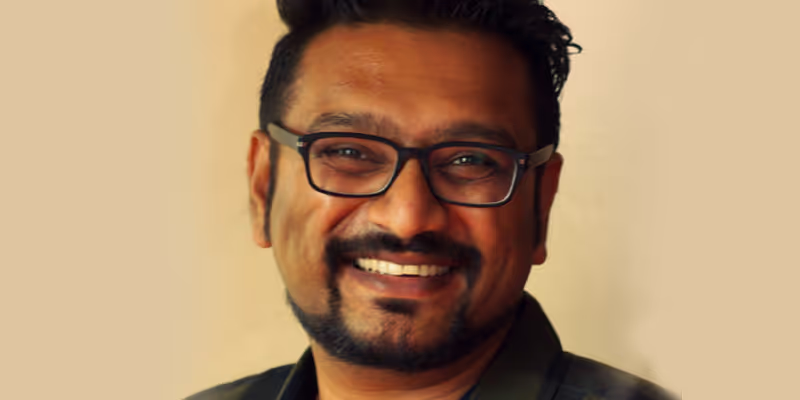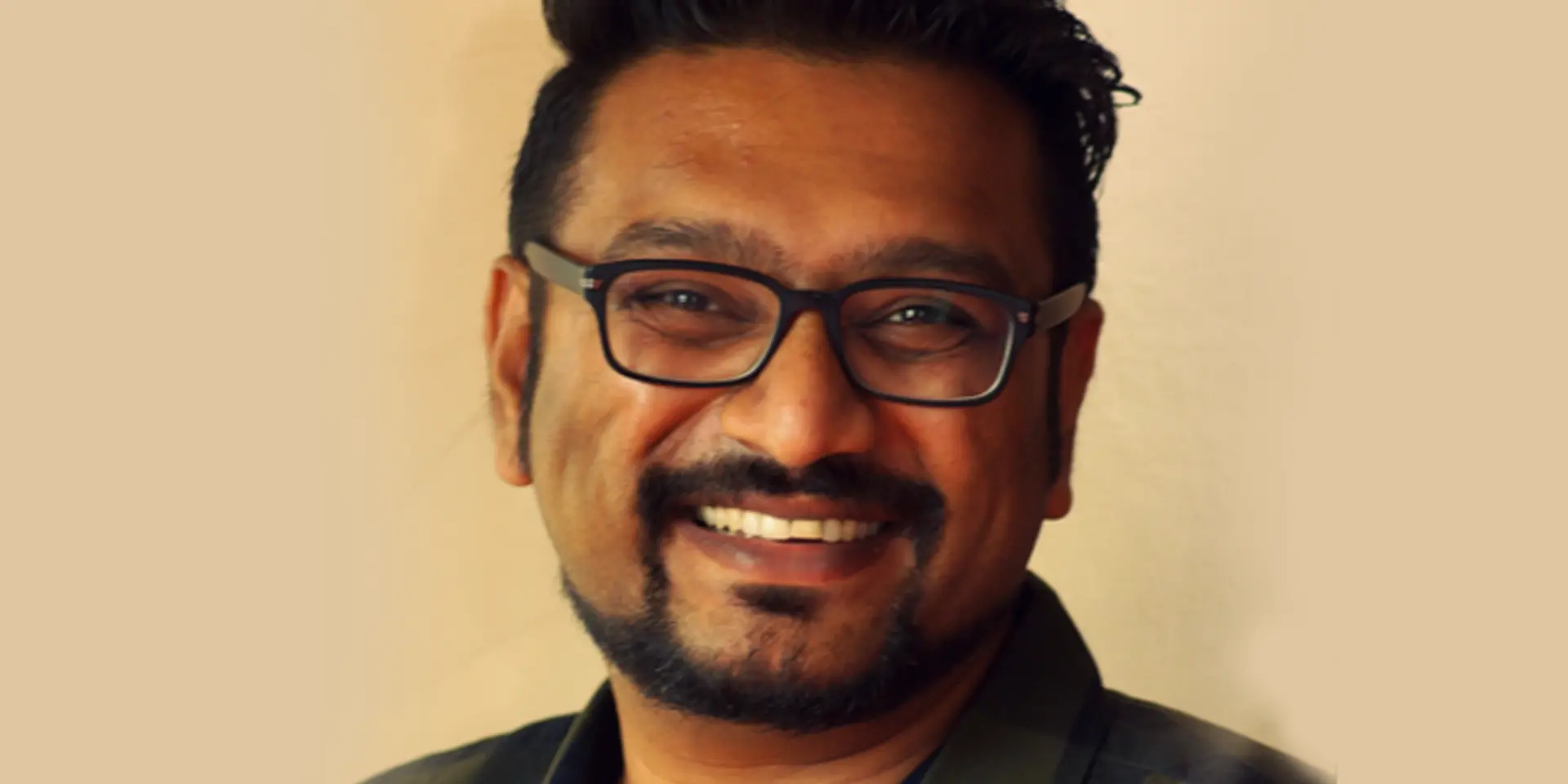Aprameya Radhakrishna gets ‘Vokal’ on his second entrepreneurial innings
From founding TaxiForSure to working for the next billion, Aprameya Radhakrishna talks about his new startup Vokal. The platform has been active for close to six months, and has raised funding from Accel Partners and Blume Ventures.
At a glance:
Startup: Vokal
Founders: Aprameya Radhakrishna and Mayank Bidawatka
Year it was founded: 2017
Sector: Content
Problem it solves: Indian language content
Funding: Undisclosed
“Are you planning to start up soon?” – Aprameya Radhakrishna has been asked this question since 2015 when he and co-founder Raghunandan G sold TaxiForSure to rival Ola.
He maintained a non-committal, ‘Not at the moment’, but Aprameya ensured he was never removed from the Indian startup ecosystem.
In fact, he has played an active role as angel investor and advisor to several startups. Over the last few years, he has invested in 12 startups – some public, some not – and his investments range between Rs 10 lakh and Rs 40 lakh. His investments include Goodbox, a hyperlocal app that enables business operating in a brick-and-mortar structure to go online, Unacademy, which offers online tutorials, Vyomo, that offers on-demand beauty services, Daily Ninja, an online platform to manage daily needs, and YourDost, an online counselling startup.

Then on to starting up again
For an ecosystem not expecting Aprameya to start up anytime soon, it came as a surprise when he took to Facebook to announce his second entrepreneurial innings with Vokal, an Indian language question-answer platform for users who are not conversant in English.
Sitting at a cafe in Indiranagar, Bengaluru, Aprameya’s entrepreneur mode kicks in and he explains why felt strongly about a problem, and what Vokal does.
But before that, I want to know - is it easier the second time round?
“Definitely,” says Aprameya. Hiring people and finding funding is easier because people have an understanding of your track record, and the mistakes are different, he says.
“There will be newer mistakes. Startups are all about timing. People you find to work with you, ideas - are they early or late? Whether people will love it or not? Most of these things will be out of your control. You just need to put it altogether and see. There will be newer mistakes, and I am ready to make those mistakes.”
Focussing on the next billion
Aprameya goes on to add that the economic disparity in the country is primarily because of a ‘knowledge disparity’. He says,
“Today, it isn’t difficult for us to find answers for any query or doubt that we have. We just have to pick up our phones and look for the answers online. But, if you sit back and think, you realise that only a small sliver of the Indian population who is fluent with English can do that. What about those who possibly aren’t fluent with English language but are fluent in a native Indian language? Vokal has been built keeping that audience in mind.”
Vokal is a user-generated content platform that allows one to learn from others. Most non-English speaking Indians today need to either rely on family and friends, or a few content platforms. Aprameya believes there isn’t much high-quality content in Indian languages that can cater to the masses.
Citing an example, Aprameya says there are over three crore people appearing for various entrance exams. While study material is available in local languages, and candidates can answer in Indian languages too, many get stumped at the starting stages - Where do I start studying? How do I crack the exams? How does one set a study schedule?
An audience that behaves differently
“The non-English speaking Indians behave differently on the internet than English speaking Indians. We use WhatsApp to communicate. For the non-English speaking Indian, communication is calling and WhatsApp is for sharing, not communicating. They aren’t conversing. While many might even have accounts on Facebook, they don't express there,” says Aprameya.
He explains that everyone has the basic human need to express themselves, but English based products aren’t catering to that need.
“Currently, all of us in India, even the English speakers, have knowledge of at least two other languages. But we have all been focussed on creating content in English. I haven’t told my TaxiForSure story in Kannada. Are there people who will listen to it? Yes, but there isn’t any platform for me to say it in? Vokal aims to be that platform,” says Aprameya.
Working on Vokal for over a year now, Aprameya kept speaking to and bouncing of the idea with Mayank Bidawataka, who is a co-founder at Vokal.
Mayank was one of the core team members at redBus, after which he went on to work in different startups as an advisor. He was the co-founder at Mediant and Goodbox prior to joining Aprameya. Explaining how he came to co-found Vokal, Mayank says,
“Vokal, in its current form, is a few months old, but I think it is a most interesting space and is the largest space available in India. It is a greenfield area, where nobody has done much and there is huge scope. It also lacks discovery and creation of quality content.”
More of voice and Q&A
Starting with the premise that while people knew that they wanted to say and express, few actually create content. People, Aprameya and Mayank realised, needed to be nudged towards creating content, and in that sense a question-answer format worked as the best context setter.
Individuals can come on Vokal and ask any question that they want, which in-turn are answered by other users. The app comes in with the options of voice and text. The platform also has a Google voice to text option. The answers can also be given anonymously.
“We mostly hide who has been asking the question, unless one chooses to go with their profile,” says Aprameya. The answer seeker can also choose to ask the question through voice, the platform feed populates itself with user generated answers. Even if an individual chooses to ask a question on Google, the Vokal platform falls under the list of different search pages.
“The English speakers are used to text, but the non-English speaker isn’t used to text. For them, forwards and audio messaging works best. The product, therefore, has to bring that out. The idea is to bring knowledge sharing with voice and audio,” says Mayank.
Hitting scale from day one
The founders being second and third time entrepreneurs, the ride must have been easier. Mayank says otherwise. He says that like any entrepreneurial journey, you need to start with the assumption that you don’t know anything. Mayank believes the only way to build for this market of the next billion is to ask the people.
“You bring in discipline of building a business, scaling fast, selecting the right team. First time, we were students of scale, but now we are practitioners of scale. From day one we look at scale,” says Mayank.
Currently, Google records over 10 billion voice-based searches in Hindi every year and close to 25 percent of all Google searches are in voice.
Vokal’s current target audience comes from Uttar Pradesh, Bihar, and Rajasthan and the team is currently setting the playbook in Hindi, which will be replicated in other languages.
Working on a different rulebook
The search engine optimisation in Hindi is different when compared with English and voice to text isn’t as accurate. “If you switch to Hinglish or talk too fast, the typing will be inaccurate, so yes, it has its challenges,” says Aprameya.
The biggest challenge is understanding this customer. There is need to understand their problem and solve it. “We still are learning and understanding,” he says.
On Vokal, one needs to only sign up to ask questions, but answering is by invite only or one needs to apply. Those answering are first approved to ensure the content quality remains high. The team intends to keep the answerers community closed at least for a year or two.
The team is also making Vokal adaptable to low internet connectivity, low mobile space, and is working on a PWA (progressive web app). Vokal has a total team size of 30, apart from the two founders, half of which work on engineering and the other on content.
For monetisation and revenue generation, the team is looking at live sessions where people can charge users to attend. “The ability to go live with your expertise is something that we will give to certain people, with a certain number of followers. In order to see it you need to pay a nominal fee of Rs 10- Rs 20,” says Aprameya.
While asking aa question to a community is free, seeking a response from a particular individual is chargeable at Rs 5 a question. Vokal has raised funding from Accel Partners and Blume Ventures.
But why a different market altogether? Aprameya says,
“I enjoyed learning about the taxi industry as we executed, and what is bigger is building for the next billion. Transport is a different ballgame - its operations heavy. And here I feel the impact is larger than just product and technology. Inspiring people to come and share what they know in language has a bigger impact.”







